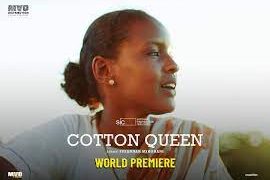
Suzannah Mirghani’s Sudanese drama, Cotton Queen, has won the prestigious Golden Alexander for Best Feature Film at the Thessaloniki Film Festival. This marks a significant achievement, as it is the first feature film directed by a Sudanese woman, and it received high praise from the festival jury for its compelling storytelling and emotional resonance.
The jury, which included Match Factory’s head of sales, Thania Dimitrakopoulou, American cinematographer Frederick Elmes, and writer-director Elegance Bratton, commended Mirghani for her film’s deep humanity and striking vision. Bratton noted, “This film stayed with us judges from start to finish. In a world plagued by genocide and conflict, it’s vital to remember what truly matters: our families, ourselves, our friends, and our communities. This film served as a poignant reminder of those values.”
Set against the backdrop of the Nile River in a small Sudanese village, Cotton Queen tells the story of Nafisa, whose aspirations for love and independence are overshadowed by her grandmother’s legacy as the illustrious “Cotton Queen.” Renowned for her defiance against British rule and gifted with foresight, Al-Sit’s influence looms large as Nafisa’s future becomes complicated by the arrival of a wealthy London entrepreneur and the decisions imposed on her without her consent.
Having premiered at the Venice Film Festival’s Critics’ Week earlier in the year, Cotton Queen poignantly explores themes of womanhood, tradition, and resilience in the face of societal expectations.
Upon accepting her award, Mirghani dedicated her victory to the Sudanese people who are enduring the challenges of an ongoing civil war. “In a time of conflict and suffering, to have created a film with a cast that is entirely displaced — all of whom sought refuge in Egypt where we shot the film — and to receive this recognition is profoundly meaningful,” she expressed.
Mirghani’s achievement not only represents a landmark moment for Sudanese cinema but also highlights the vital role of storytelling as a form of resistance and a beacon of hope during tumultuous times.


















